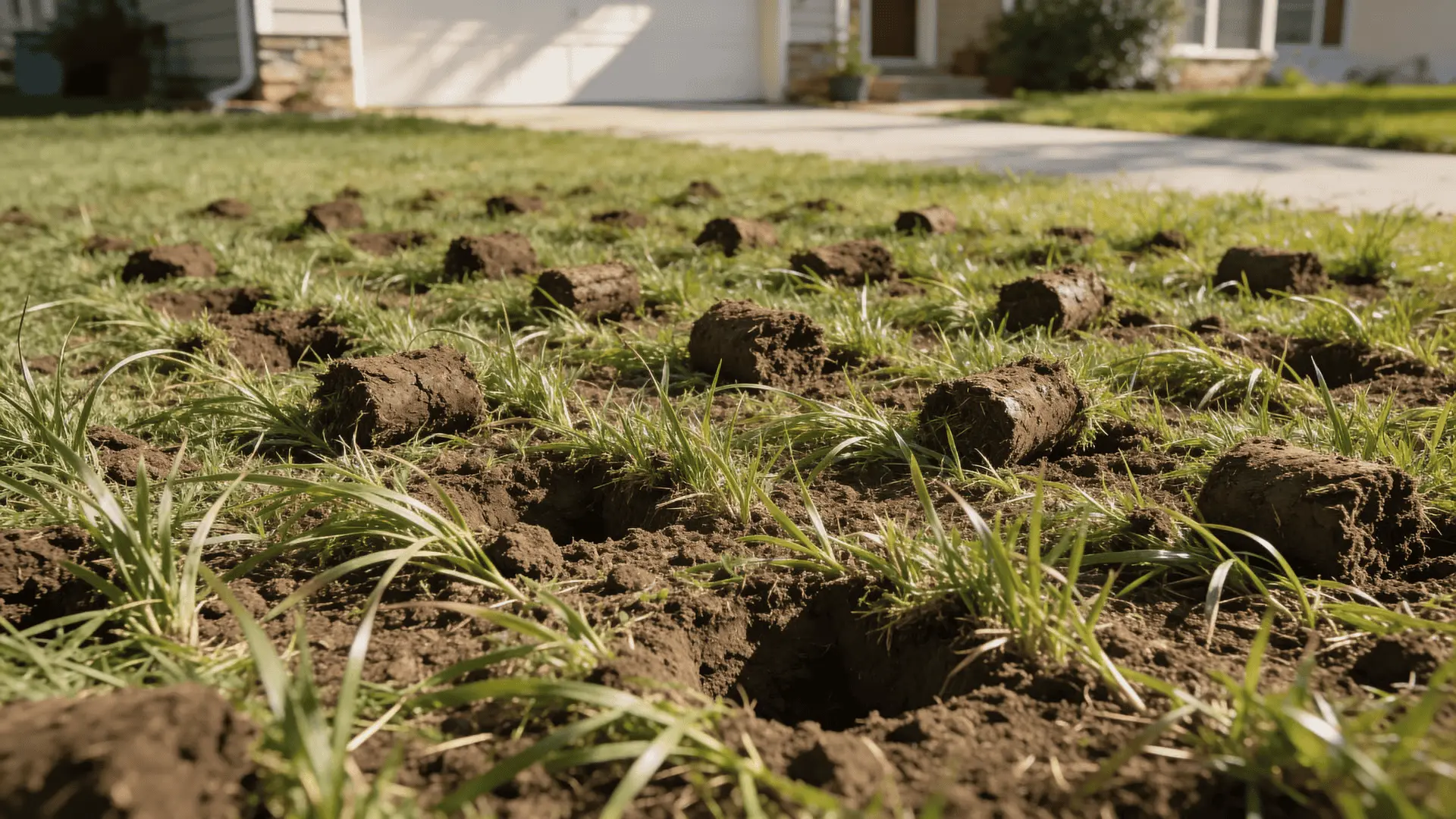Bulk waste disposal is a challenge for property owners trying to maintain clean and organized spaces. Bulk waste includes items that are too heavy or large to fit in regular trash bins and cannot be collected by regular curbside garbage services. Whether it is an old sofa, office furniture, or outdated appliances, bulk waste becomes a problem when it isn’t handled properly and on time.
The high cost, complex logistics, and the need for safe containment during disposal are hurdles to proper bulk waste management. Improper disposal has adverse effects on public health and the environment, warranting the same level of consideration as hazardous and medical waste disposal. This blog aims to educate readers about convenient, sustainable, and effective bulk waste disposal solutions for residential and commercial properties. We explore the challenges and tips for choosing a disposal solution with a professional trash service for your property.
Understanding Bulk Waste
Any large or oversized item that cannot be discarded in regular garbage containers is considered a bulky item or waste. Unlike regular household trash, these cannot be collected by curbside pickup services due to their size, weight, and special handling requirements. Their composition and presence of hazardous materials require specialized, careful disposal.
The following items from homes and offices are considered bulk waste:
- Furniture (desks, chairs, sofas, mattresses)
- Appliances (washing machine, refrigerators, air conditioners)
- Construction Materials (wood, concrete, siding, plasterboard)
- Batteries from household, cars
- Electronics (computers, laptops, televisions, stereo systems)
- Yard waste (stumps, branches, and large bags of leaves)
These require different handling techniques, including special trucks or equipment (dumpster or roll-off bins) for transportation, separate facilities for recycling or disposal, and adherence to environmental regulations. Most bulk waste can be recycled and should be handled carefully without contaminating it with general or hazardous waste. Proper disposal of bulk waste helps to clear space, improve aesthetics, and protect the environment.
Challenges of Bulk Waste Disposal
Here are the major hurdles affecting bulk waste management.
Logistics
Transferring large or heavy items without proper tools and techniques is a challenge. Moving and loading heavy items, such as furniture or a refrigerator, is not safe and practical without proper equipment or assistance.
Local Regulations
Each municipality has strict rules for the disposal of specified materials. Many landfills limit the type of waste they accept, whereas certain appliances or construction materials have specified disposal or recycling methods to comply with environmental regulations. Failure to comply with these disposal practices can lead to hefty fines and legal action.
Environmental Impact
Improper disposal of bulk waste causes overflowing landfills, contaminated soil, and a polluted environment. Many bulk items can easily be reused or recycled instead of ending up in landfills. Contamination by regular trash hampers such recycling efforts. Batteries and electronics contain harmful chemicals that release toxic fumes. Metal scraps, industrial waste, and electronic waste contain heavy metals that degrade health and the environment.
Cost and Expenses
Regular trash bins are not designed to handle large items. Dumpsters and roll-off bins need to be rented for their transportation. Renting, along with disposal and pickup logistics, is often expensive.
Options for Residential Bulk Waste Disposal
Here are some budget-friendly and efficient ways to discard bulky items for homeowners:
Municipal Pickup Programs
In many cities, the local waste management department provides bulk waste collection services for the residents. This is the most affordable option, but there might be limits on the number of items or types of waste accepted.
Private Junk Removal Services
Many private companies offer waste removal services. They handle everything from waste pickup and transportation to proper disposal, recycling, or donation. The cost may depend on the size, volume, and weight, and the distance to be covered. Though expensive, these services ensure convenience and speed.
Dumpster Rental
If you are undertaking a cleanout or renovation project, a temporary dumpster rental is an effective solution. You can fill the dumpster throughout the project, and the service provider handles pickup and disposal at the end.
Donation and Reuse
If a furniture or an appliance is in usable condition, consider donating it to organizations like Goodwill, Habitat for Humanity, or local charities instead of disposing of it. You can help those in need while reducing landfill waste.
Recycling Centers
Before dumping your waste, try to segregate recyclable items such as wood, metal, and glass. Separate such items from general waste and send them to recycling centers to lower disposal costs and your carbon footprint.
Commercial Bulk Waste Disposal Solutions
Business and property managers face the challenge of managing waste on a large scale. Here are a few efficient ways to manage waste.
Scheduled Collection Services
Many professional waste management companies offer regular or on-demand collection services. They customize their service to your needs and make sure your facility is compliant with disposal laws.
Roll-off Containers and Compactors
For businesses that generate frequent or large volumes of bulk waste, roll-off containers and compactors are the best long-term solutions. These save time, reduce pick-up frequency, and can be adjusted to match the waste volume.
Specialized Contractors
For a construction, demolition, or industrial site, you will require the services of specialized waste contractors who handle heavy debris, scrap metal, and hazardous materials in compliance with local and environmental laws.
Compliance
Businesses must comply with strict environmental regulations regarding waste transport, recycling, and disposal. Maintain proper documentation to avoid legal issues and demonstrate corporate responsibility.
Cost Management
Businesses must conduct regular audits to identify cost-saving opportunities, such as waste reduction or recycling programs. Partnering with reliable waste management companies reduces long-term disposal expenses.
Eco-Friendly and Sustainable Disposal Practices
Sustainability should be the heart of the disposal program adopted by residential and commercial property managers. Here are some eco-friendly disposal practices.
Recycling
Many bulky items can be recycled into new, high-value items. Recycling appliances and electronics can recover raw materials and lower the dependence on natural resources. Old wooden furniture can be upcycled or repurposed into decorative items.
Reuse or Donation
Donate or resell items instead of discarding them. Yard sales or social media marketplaces are great for selling second-hand items. Material recovery facilities can extract valuable raw materials, reducing the load on landfills and natural resources.
Partnering with Green Disposal Companies
Many disposal services work with recycling facilities or charities to reduce landfill waste. Research and partner with companies with sustainable practices to reduce environmental pollution and degradation.
Composting
Composting is the most sustainable solution for residential landscaping and yard waste. It converts organic waste into manure that enriches the soil. Many cities have programs to collect yard waste or compost bins.
Eco-friendly practices reduce the pressure on landfills, conserve natural resources, and reduce carbon emissions. Reusing and recycling change consumption patterns, fostering a cleaner and sustainable community.
How to Choose the Right Bulk Waste Option
The right bulk waste option depends on several factors. First, assess the type and volume of waste generated by your facility in a specific period. It will help you decide on the size of dumpster to rent and the frequency of pickups required.
Your budget is the first constraint when choosing a waste disposal solution. Research and compare the costs between municipal pickup, private services, and dumpster rentals.
Select the option that offers affordable services without compromising on quality.
Environmental sustainability is another factor to consider. Choose a disposal service that prioritizes recycling and sustainability. Check for municipal or private services in your area and select the one that ensures efficiency and cleanliness while staying eco-friendly.
Tips for Hassle-Free Bulk Waste Disposal
For a hassle-free bulk waste disposal, follow these tips.
- Schedule rentals and pickups early to avoid overflowing waste in your property.
- Sort recyclables, general waste, and donations at the source to facilitate proper disposal.
- Understand local regulations regarding hazardous waste and restricted items to avoid fines.
- Be aware of higher charges for specific items such as mattresses and electronics.
- Use protective gear while handling heavy or sharp items to reduce accidents and damage to property.
- Maintain proper documentation of waste pickup, transport, and disposal for compliance and auditing purposes.
Proper Bulk Waste Disposal
While cleanouts, renovations, and moving are exciting projects, bulk waste management at the end of the day is a hassle for every property owner. Proper disposal maintains a clean, safe, and eco-friendly property. Understanding the different disposal options helps property owners save time, effort, and money.
With proper planning, choosing the right solution, and eco-friendly practices, everyone can contribute to a greener planet. Assess your waste disposal needs, explore local options, and partner with a reliable waste disposal service for a smart and sustainable disposal program.








